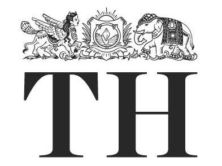
Quote Shakespeare all you want in China? Bloggers fact checked a New York Times story about a man in China had his call dropped while reciting a line from Shakespeare. (Credit: Flickr, "tonynetone")
Bloggers and tweeters in China have fact checked and criticized the New York Times for its recent story on censorship in China.
What’s in question with the March 21 story (see here) is its anecdotal lede about an unnamed “Beijing entrepreneur” who had his phone call dropped after he quoted Shakespeare and said the word “protest” twice.
The paragraph in question:
“A Beijing entrepreneur, discussing restaurant choices with his fiancée over their cellphones last week, quoted Queen Gertrude’s response to Hamlet: ‘The lady doth protest too much, methinks.’ The second time he said the word ‘protest,’ her phone cut off.”
Adam Minter, an American writer living in Shanghai, wrote on his blog Shanghai Scrap that he tested the New York Times’ anecdote and called five people with Chinese cell phones. While on the phone with those five people, Minter said three phrases twice. The phrases were :
“A) Queen Gertrude’s response to Hamlet, ‘The lady doth protest too much, methinks,’ b) ‘I like Bob Dylan’s protest songs, the most;’ and c) ‘PROTEST PROTEST PROTEST!'”
According to Minter, none of the phone calls were disconnected or dropped.
As a result, Minter announced that
“a) Foreigners can feel confident that they can quote Shakespeare, in English, when discussing restaurants in China on the phone; b) the New York Times needs to widen its circle of sources on censorship beyond people who quote Shakespeare, in English, when discussing restaurants on the phone. Further study needed on whether or not phones used by New York Times correspondents and assistants are the most reliable means of judging phone censorship in China.”
Minter noted that one of the writers credited for the Times story, Jonathan Ansfield, doesn’t tweet often, but did re-tweet two Twitter posts about the article. One of the re-tweets was a Beijing-based writer, Brendan O’Kane’s, call for a correction to the Times story.
“Seriously: can anyone come up with another example of a New York Times reporter making such a public effort to back away from a published story with which he or she has a credit?” Minter wondered.
While Minter didn’t question that censorship in China is “a real phenomenon,” his point was that the Times’ example was “ludicrous” and “unverifiable.”
Minter also cited several tweets skeptical of the Times’ story. In the comments section of Minter’s blog post, a user named James Fallows (who may or may not be the media critic and former New York Daily News editor by the same name) commented that he tested the Times story by calling locally in Beijing “on a China Mobile phone.” Fallows described his conversation:
“The entirety of my discussion was ‘sensitive’ terms, one after another. You can guess the specifics: a banned religious group, a spiritual leader/’jackal’; a splittist island; a movement with the name of a flower; a major public area in Beijing. And so on. The call ended only when I had bored myself silly.”
Fallows suggested the Times could have avoided this issue by clarifying that “the episode seems not to have been typical and could even have been purely accidental. But it illustrated a larger pattern…”
Gothamist-owned blog Shanghaiist blogged that it also tried out the Times’ claim and perhaps jokingly wrote: “Shanghaiist’s own experiments failed to yield the same result, but it’s gotta be true if it was in the NYT, no?”
iMediaEthics has written to Sharon LaFraniere, one of the journalists credited with the Times’ story, asking for comment and if the Times had any plans to publish a correction. We have also written to Minter and will update with any response.
UPDATE: 3/26/2011 11:03 AM EST: Adam Minter responded to iMediaEthics’ e-mail inquiry. Minter said that he has asked the Times for a correction and that he has spoken with Jonathan Ansfield, one of the reporters credited with working on the Times story.
We asked Minter why he got interested in fact checking the Times story. He wrote:
“The Times’ story claimed that the reporters made exactly one attempt to verify the Shakespeare in China phenomenon, and it wasn’t even in the same language in which the original incident took place. Also, I’ve lived in China for eight years and thus I’m intimately familiar with bad cell phone signals in major cities – they cut out all of the time. Yesterday, in fact, I had a call drop out when I mentioned a friend’s wife’s name. Is that name a censored term in China? I think not. The whole thing struck me as – ahem – stinky journalism.”






